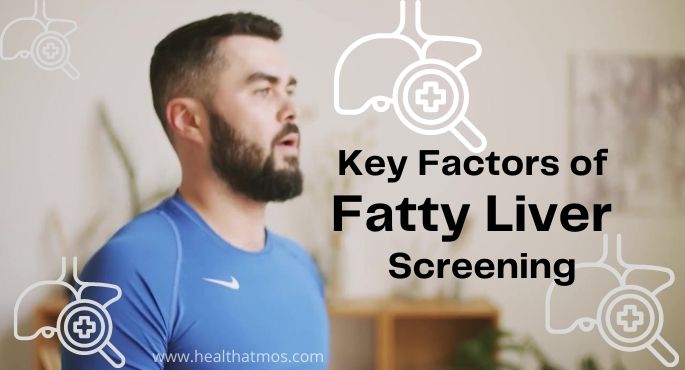Medical Examination to Determine the Fitness of the Cabin Crew:
Cabin crew must remain medically fit to discharge duties of in-flight operations including aircraft emergency as specified in the operations manual. Considering the ageing process and requirement to perform cabin safety duty efficiently, frequent medicals for Aviation crew are prescribed. The cabin crew are categorized as fit, temporary unfit or permanently unfit based on their medical assessment. The temporary unfit employees are given time to get back in shape to fly again.
Cabin crew medical examinations and assessments are carried out by an Aeromedical Examiner (AME) or Approved Occupational Health Medical Practitioner (OHMP). All aviation workers are tested for the following psychoactive substances: Amphetamine, Methamphetamine, Cannabis, Cocaine, Opioids, Barbiturates, Benzodiazepine and MDMA or Ecstasy. If an aviation staff is tested positive in a drug test, the DGCA must be informed within 24 hours. In case a person is found positive in a drug test twice during work, his or her license will be suspended for 3 years, but if the test is positive the third time it will be cancelled.
Health Atmos offers Health Examination Packages for Cabin Crews that meet CAA (Civil Aviation Authority) guidelines. Our Aeromedical Examiner (AME) will provide expert care and advice to ensure that you are fit and healthy enough to carry out your job without endangering yourself or those around you. We aim to make the process as simple as possible.
New Cabin Crew Medicals
All new cabin crew members should have a medical assessment by a CAA licensed Aeromedical Examiner.
- Pilot or co-pilot
- Air Hostess
- Flight attendants
Periodic Cabin Crew Medicals
Cabin crew members are required to have a periodic medical assessment every five years (60 months).
- Pilot or co-pilot
- Air Hostess
- Flight attendants
Other Cabin Crew Medicals
In case of sick leave or an ongoing medical condition, medical fitness will be required to return back to work.
- Pilot or co-pilot
- Air Hostess
- Flight attendants
*Health Atmos offers a customizable in-built CRM capable of scheduling tests, payment gateway and report submissions so that you can track and manage staff health at a click of a button. Health Atmos is also a Trusted Medical Associate of IATA Travel Pass.
What are the Medical Requirements of the Directorate General of Civil Aviation (DGCA)?
- The Directorate General of Civil Aviation (DGCA) has decided to re-start the mandatory breath analyzer (BA) tests for all pilots, crew and other staff members involved in flight operations. The compulsory daily breath analyzer (BA) tests were suspended during the second wave of the COVID-19 pandemic in India.
- Cabin crew members under 40 years of age must undergo medical tests once in every four years; once in every two years for cabin crew members between 40 and 50 years of age, but annual tests for cabin crew members above 50 years of age.
- The DGCA states that airlines and air navigation service providers have to carry out random drug tests for at least five per cent of the flight crew members and air traffic controllers employed every year.
What happens at a Medical Assessment for Cabin Crew?
All new members of the cabin crew must undergo an initial medicals for Aviation crew. Periodic medical assessments are then required from then on at regular intervals. You are required to complete a form before the medical, outlining any existing medical conditions. The following medical examination may be carried out:
- Urine test (to check for diabetes, drugs and alcohol)
- Eyesight and hearing tests (If your vision is below 6/9 you may be turned down).
- Height and weight
- Blood pressure test
- ECG to test your heart rate and the general condition of the heart
- Chest X-ray
- Dental check and teeth X-ray
- HIV test
- Blood test (for abnormalities and evidence of drugs/alcohol).
- Hepatitis C blood test
- Hemoglobin blood count
- Lung function test
- Cervical smear (if applicable)
Fit to Fly:
After the medicals for Aviation crew or if the new employee is found to be ‘Fit to Fly‘ then they are allowed to join the service. Cabin crew need to prove that they are fit to be allowed to fly because few sick leaves are allowed at work. If you are not fit to fly, then you will be asked to leave.
The Initial Medical Form:
The medicals for Aviation crew consists of a Declaration of health form which needs to be completed by all aspiring cabin crew. At this point, they are given the chance to declare any illnesses, pre-existing conditions or past surgeries that may impact their ability to be fit to fly. They will also ask general questions regarding your health, like ‘how much do you smoke and drink each week?’, or ‘how frequently you exercise?’.
Further Tests and Immunizations:
Civil Aviation Requirements (CAR) have rules to dispose of High BMI (Body Mass Index) cases for overweight and obese cabin crew.
- Your lung function is also examined by blowing into a device.
- You may be asked to lift 20kg weights to prove that you are strong enough to work at high altitudes.
- You will then be given your immunizations for conditions such as polio, tetanus, tuberculosis, meningitis, yellow fever, hepatitis A, hepatitis C, etc.
If you have passed all of the above examinations, then you should be fit to fly!
Why Should you Choose Health Atmos?
We aim to make the process simple, efficient and smooth.
- Our Aeromedical Examiner (AME) is fully qualified and accredited to provide high standard service.
- No long wait times to get your cabin crew assessment in Health Atmos.
- Professional and safe assessments.
- We provide cabin crew medicals and several other types of medicals such as HGV, Pilot and LGV medicals.





